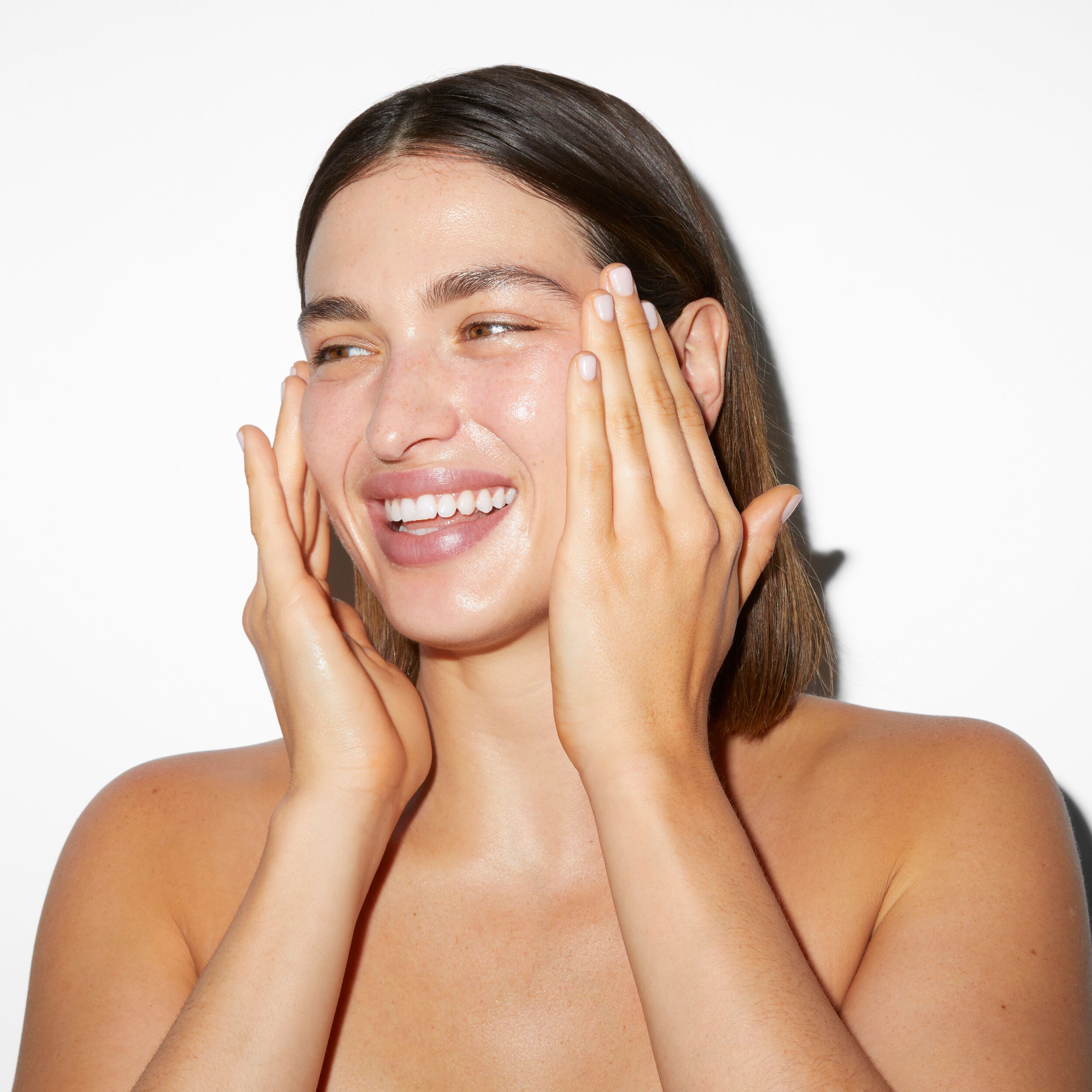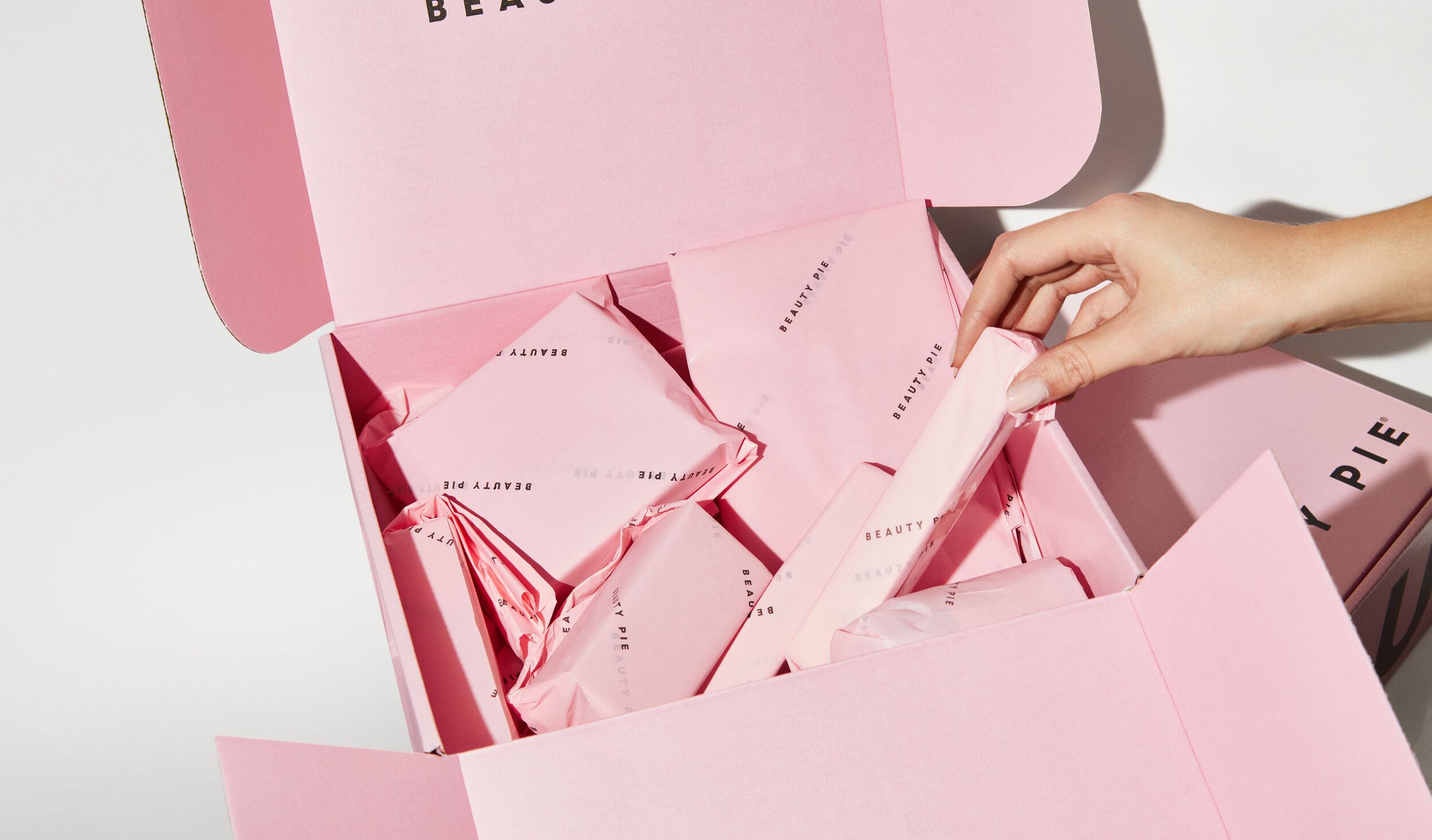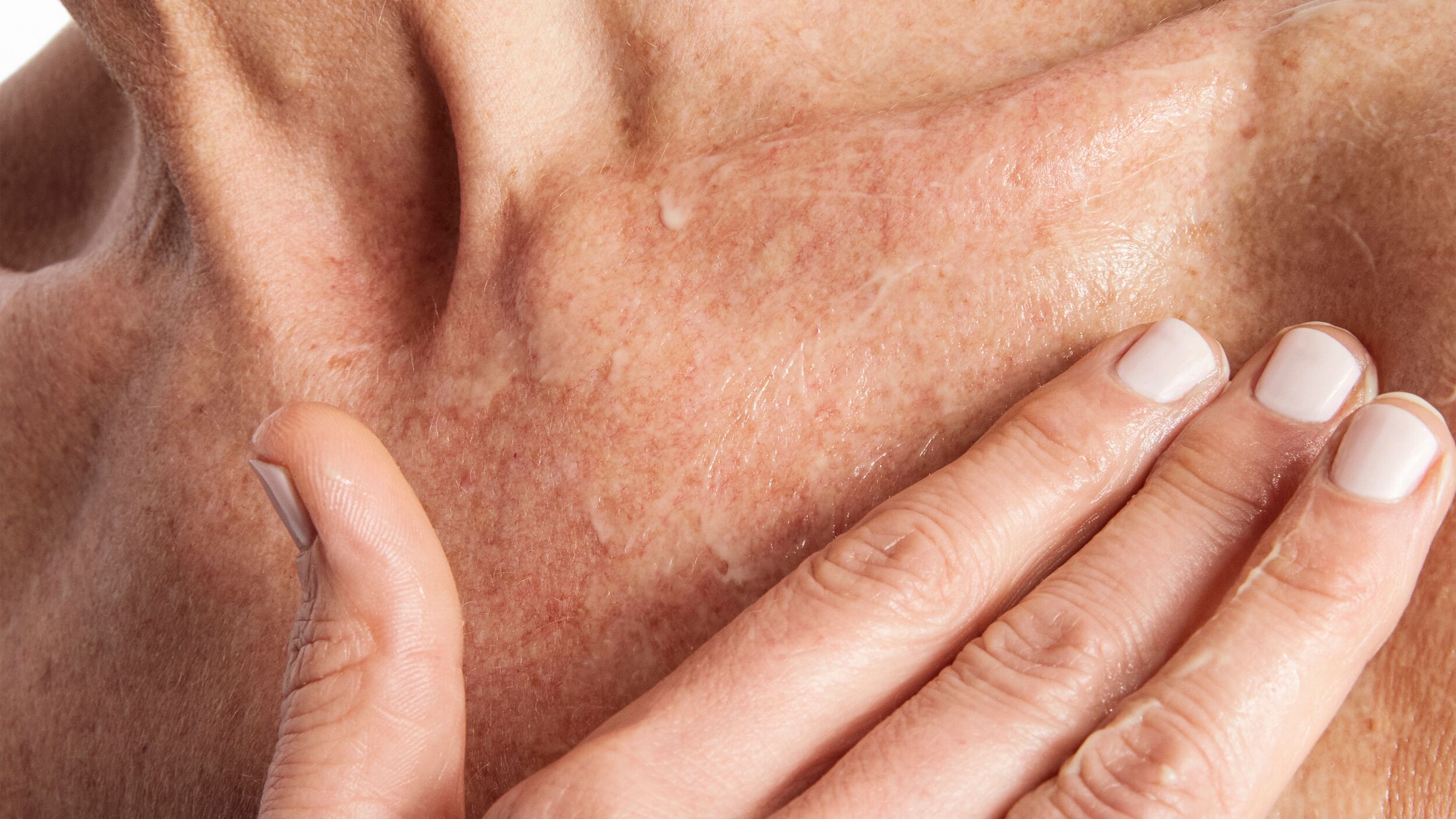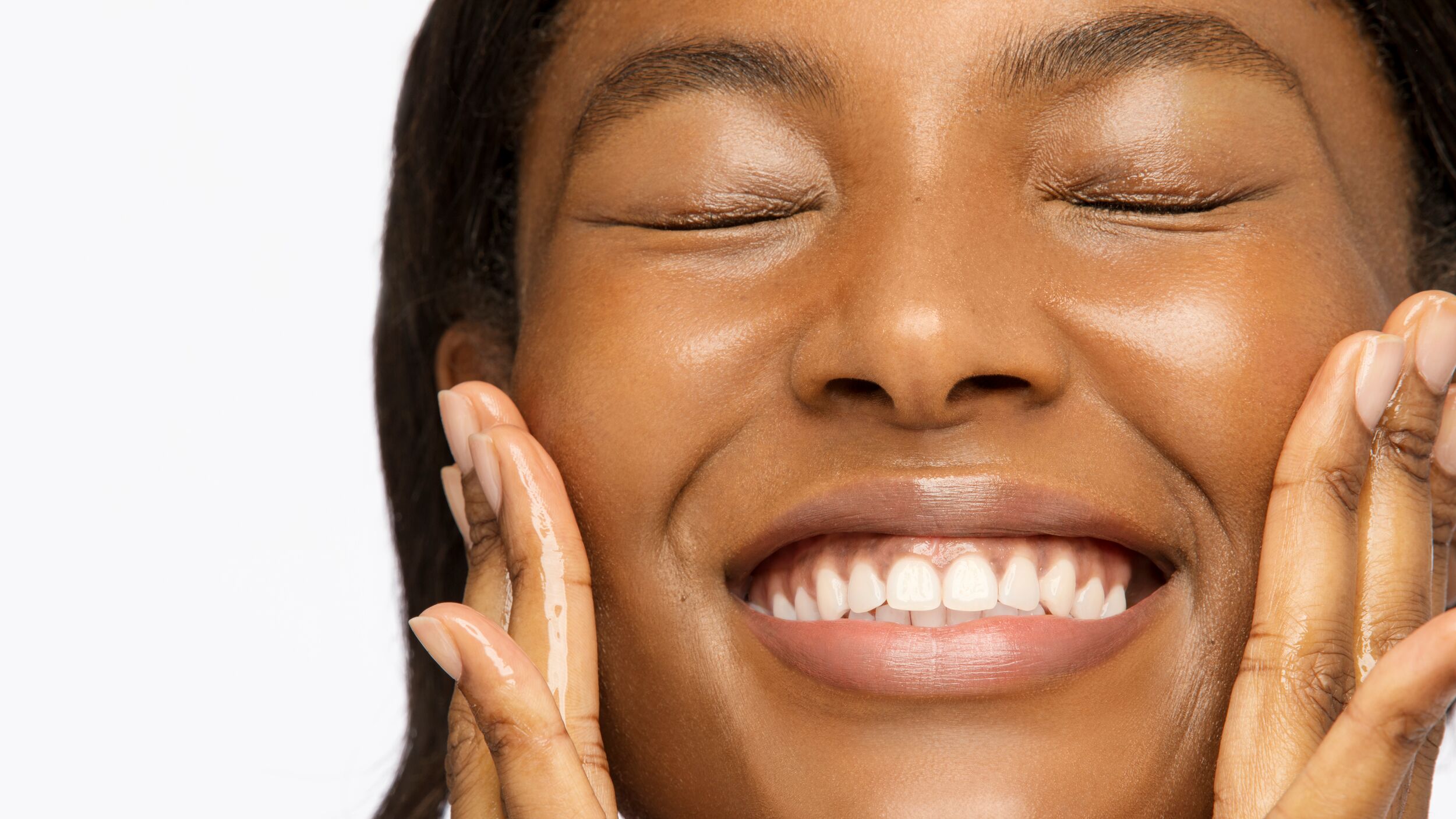
Maybe it’s the changing season (raise a hand if your skin is feeling a little...’meh’ right now), or maybe it’s that fact that Elle UK just crowned it the 'Best All-Round Hyaluronic Acid Serum', but Triple Hyaluronic Acid Lipopeptide Serum is flying off the shelves right now.
We all know Hyaluronic Acid delivers an instant hydration hit and world-renowned dermatologist Dr Andrew Markey, MD FRCP, describes Hyaluronic Acid as a “fabulous moisturiser”, explaining you can think of Hyaluronic Acid like a moisture magnet. “It is a very large molecule naturally found in our skin, as well as the connective tissues in our bodies,” he says. “In face creams, though too big to penetrate the skin, it is hydrophilic [aka attracts water] making it an incredibly powerful moisturiser.”
The main function of this clear substance, naturally produced by your body, is to retain water in the tissues (which is what earns it the nickname ‘moisture magnet’). It’s a disaccharide, which is a type of sugar, and is made from the monosaccharides D-glucuronic Acid and N-Acetyl D-glucosamine. Its highest concentrations are found in your skin, connective tissue and eyes – and it’s the fact that it occurs naturally in the body that makes it such a gentle-yet-powerful skincare ingredient.
What does Hyaluronic Acid do?
It might be quicker to ask what it doesn’t do. The fact that it forms part of your skin’s extracellular matrix (ECM, a sheet-like structure separating the epidermis and dermis, which controls the behavior of skin cells), helping to keep cells hydrated, means that it has multiple benefits: from helping cell turnover to function optimally to supporting communication between the cells.
Hyaluronic Acid delivers an instant hydration hit, helps barrier-repairing function and protects skin against inflammation
Marcia Kilgore, Beauty Pie Founder
“Hyaluronic Acid delivers an instant hydration hit, helps barrier-repairing function and protects skin against inflammation (which experts now say is responsible for ageing),” says BEAUTY PIE founder Marcia Kilgore. “And it’s compatible with all skin types, is non-comedogenic, and makes your face look dewier and younger.”
Hydrates: The upper layers of your skin, to reflect light and make your skin look luminous
Plumps: By attracting 1000x its weight in water into the skin tissue
Smooths: Fine lines and wrinkles, making them look less visible, immediately
Hyaluronic Acid can be found in everything from serums to creams to capsules to sheet masks (and in injectables like Restylane, or Juvederm, which we obviously don’t have here at Beauty Pie). And it’s powerful – so you probably don’t need it in more than one layer of your morning or evening routine.
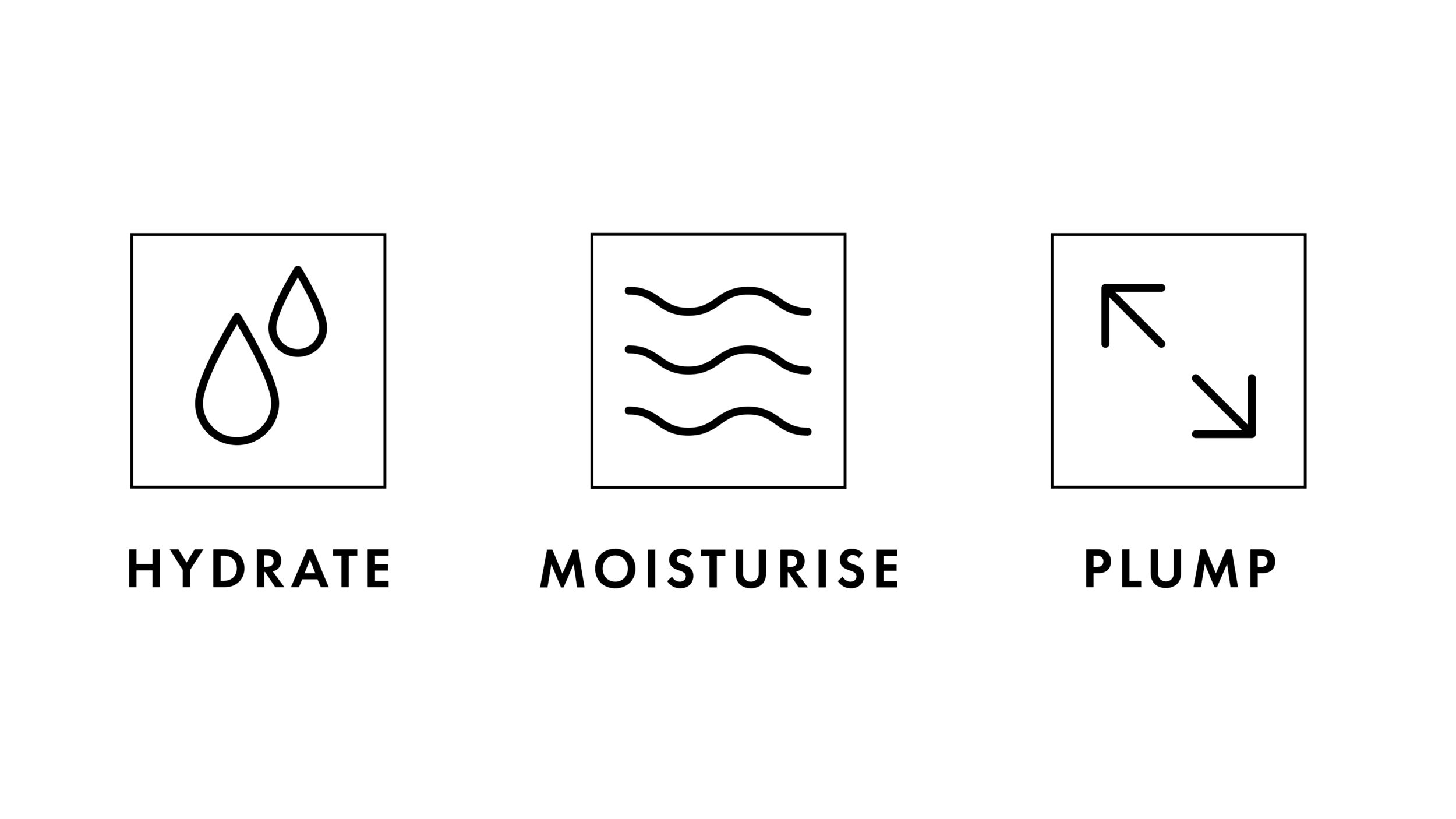
How does Hyaluronic Acid work in the skin?
Hyaluronic Acid is a Glycosaminoglycan, which is found naturally in the human body and as a structural component of the skin. It’s also produced synthetically to give lacking skin a boost! Our naturally-occurring levels decrease as we get older, so boosting levels from the outside absolutely helps!
The Hyaluronic Acid in your skin doesn’t hang around forever. Although it’s naturally produced by your body, up to 50% of it is broken down every 24 hours as part of the normal, natural turnover of the skin – which is why it makes sense to top up your HA levels from your skincare.
Stress, ageing, inflammation and environmental factors like sun damage can also help to decrease the Hyaluronic Acid levels in your skin. When this happens, your skin loses its ability to bind as much water, and the upshot is you lose some of that youthful plumpness and dewiness that makes your skin glow.
Why is Hyaluronic Acid called a 'Moisture Magnet'?
Hyaluronic Acid molecules work by binding themselves to moisture brought from the deeper layers of our skin up into the top layers - which according to Dr Markey, is what makes it so good at ‘plumping up’ skin and helping to reduce the appearance of fine lines and wrinkles.
Hyaluronic acid is a category of skincare ingredients that are hygroscopic – meaning they draw moisture from their surroundings
Dr Andrew Markey, Consultant Dermatologist
He also says it makes a great choice in summer: “In humid environments it can also attract water directly from the surrounding air. It is classified as a humectant – a category of skincare ingredients that are hygroscopic – meaning they draw moisture from their surroundings. It is this ability to retain – and attract – moisture that makes it a firm favourite with industry experts.”
Why does molecular weight matter?
Not all Hyaluronic Acid is created equal. It can come in different molecular sizes (also referred to as molecular weights, which are measured in daltons) and these can affect how well your skin can absorb them. The larger the molecule, the less it will be able to penetrate the skin, meaning it will sit on the skin’s surface and – while it can definitely help to plump and hydrate there – won’t be able to get to work deeper down within the epidermis.
Smaller HA molecules can penetrate deeper, but bind less water – so ideally, for exceptional skin hydration, you need a Hyaluronic Acid product that has multiple molecular weights in one. The result? You get instant and longer-lasting hydration at the same time.
Footnotes
Reviewed by Consultant Dermatologist Dr Andrew C Markey MD FRCP.
